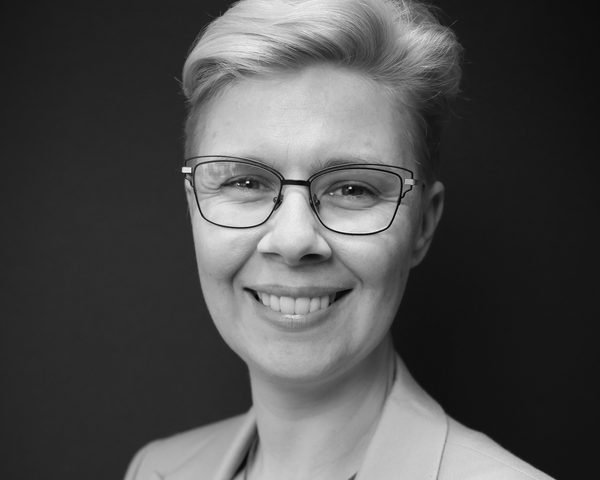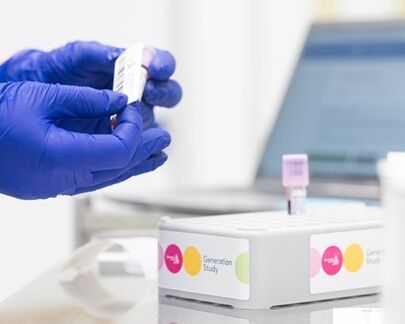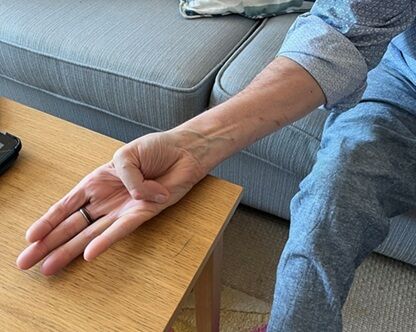Newborn Genome Sequencing – science vs science fiction
A recent article published in The Mirror by Dr Miriam Stoppard criticised the Newborn Genomes Programme at Genomics England. Dr Richard Scott, Chief Medical Officer at Genomics England responds:
Contrary to Dr Stoppard’s views, whole genome sequencing of newborns is not a “wise precaution to head off adult disorders”. In reality – the reality where evidence-based science is our best weapon against disease – it’s about improving and saving lives through early diagnosis of severe, treatable childhood conditions and improving the care we can offer to the children of tomorrow.
As a genetics consultant working with young children and their families, I see the advantages that early genetic testing brings to my patients. I also see families where diagnosis comes too late. Across the country, nine babies are born every day with an undiagnosed, treatable rare genetic disease who could benefit from the whole genome sequencing at birth.
Our Newborn Genomes Programme has a very clear vision:
- To evaluate the utility, feasibility, and impact on the NHS of screening for a larger number of childhood-onset rare genetic conditions in newborns, including what support they will need
- To understand how, with consent, the genomic and health data could be used for research to enable new diagnostic discoveries and treatments to be developed
- To explore the potential risks, benefits, and broader implications of storing an individual’s genome over their lifetime
We will only be looking for rare diseases that impact on the quality of life for children when they are still young – and these conditions must be ones that doctors like myself can do something about. This is not a programme about burdening families with speculative predictions about what might happen to their child’s health when they become adults.
The Programme is in its early stages of development because before we start we need to understand people’s views, hopes and concerns to ensure we design the pilot in the right way. Genomics England has held an extensive public dialogue and parents, the public and health professionals across the NHS are working closely with us to design the programme. We will continue to work in this way, to share our progress and seek input from the public.
Rare disease charities tell us that in the UK we must improve on the current newborn heel prick test, which only looks for nine conditions. Our programme is an important part of how we explore how to best do that. Using whole genome sequencing alongside the current test could let us detect many more conditions. This list continues to grow, thanks to new developments in diagnostics and targeted therapies, perhaps to several hundred.
The UK is recognised as a global leader in genomic science, with advancements now being incorporated into routine healthcare. That’s not just down to the sort of science that happens in a lab. A lot of our success here has been thanks our ability as a nation to discuss complex areas like newborn genome sequencing – to explore how we can use new science to address important healthcare challenges while, for example, ensuring privacy and how we protect data meets the high expectations of patients and families. Engagement in these sorts of discussions is a core part of our Newborn Genomes Programme not just as we design but also as we run it.
Genomics England was established to deliver the ground-breaking 100,000 Genomes Project, in partnership with the NHS and our participants. The Project helped lay the groundwork for whole genome sequencing to be offered routinely in the NHS to patients with cancers and rare diseases – a service our infrastructure now supports. We’re proud of the benefits that is bringing and the care we take in doing so.
As the custodian of our participant’s genomic data, we take our governance responsibilities extremely seriously. That means using industry-leading technology to protect and keep the data safe. It also means giving our participants a central role in overseeing everything Genomics England does and who can access their data.
The project is working with parents and families across the UK to learn from their experiences, their understanding of genomics, the sensitivities, and hopes for the potential pilot research project. Valuable insight from parents will inform how the project is developed and delivered locally in hospitals. We’re passionate about listening and learning and ensuring we’re supporting parents and partners. Co-designing this project is essential to ensure everyone has a choice and babies get access to care and help in their early years.
Rebecca Middleton
Vice Chair of the Genomic England’s Participant Panel, and rare disease patient
The data that participants allow us to hold will only be used for their own healthcare, and for finding new answers and treatments for themselves and others. Put simply, this data is not – and will never be – shared with other government organisations, for purposes beyond health and scientific research.
And Dr Stoppard’s theory that the DNA information we hold could be rapidly used by the police to solve crimes is a work of science fiction – it’s simply not true.
Genomics England is proud of our work with the NHS, researchers and our participants, and we will continue to seek better ways to advance healthcare using genomics.
There is no hidden agenda and we will continue to share our progress and engage with the public and experts as design our Newborn Genomes Programme. Patients are at the heart of everything we do – and we will continue to help the NHS embed genomics into routine care to improve diagnosis and treatment for everyone now and in the future.


